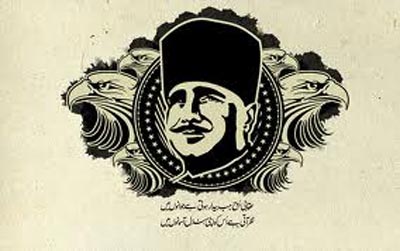
His grandfather lived in Kashmir who was Kashmiri Pundits then he embraced Islam and migrated to Sialkot. Father of Iqbal name was Sheikh Noor Mohammad who was a good tailor and his mother was a polite and humble woman whose name was Imam Bibi and she was always ready to help her neighbors and died on 9 November 1914. Iqbal loved his mother very much.
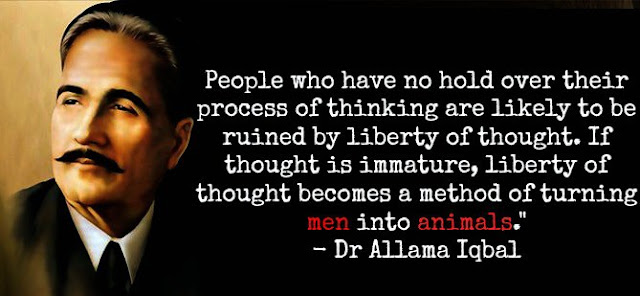
Educational Life
Sheikh Allama Mohammad Iqbal was four years old when he started his study from birthplace Sialkot. Firstly he admitted to the mosque where he learned the Quran and Arabic language from his lovely teacher Syed Mir Hassan that was the head of the madrassa and professor of Arabic language at Scotch Mission College in Sialkot. Iqbal completed his matriculation in same institute in 1893. After that he completed F.A degree from Murrey College Sialkot in 1895. He had interest in Philosophy and received degree B.A with English literature from Government College Lahore in 1897.
Iqbal went to Germany and completed his Master degree in 1899 and selected as a junior professor of philosophy at Government College Lahore.
Allama Mohammad Iqbal started to learn the knowledge of Arabic and Persian from Mr. Hassan that was a good teacher and completed his matriculation and F.A in 1893 and 1895 respectively. He had interested in Poetry and started the classes from Mein Mirza Arshad Gorani and Daagh Dehlvi also had taught poetry. He has been translated into many European languages when his work was famous and due to his work he recognized and quoted as “Poet of the East” by academics and institutions and media.
Political Life
Allama Iqbal joined the politics in 1930 and linked the Muslim League with the reference of Quaid-e-Azam. Iqbal was the person who gave the idea for separate Muslim Nation state. He had remained active in the Muslim League. He did not support Indian involvement in World War I and remained in close touch with Muslim political leaders such as Mohammad Ali Jouhar and Mohammad Ali Jinnah. He won the province seat and selected as a member of provincial assembly. He said that “I would like to see the Punjab, North-West Frontier Province, Sindh and Balochistan amalgamated into a single State. Self-government within the British Empire, or without the British Empire, the formation of a consolidated North-West Indian Muslim State appears to me to be the final destiny of the Muslims, at least of North-West India”.
The spirit of Change
Allama Iqbal Balkan wars and the Battle of Tripoli, in 1910, shook Iqbal powerfully and inflicted a deep wound upon his heart. In his mood of anger and frustration, he wrote a number of stirring poems, which together with portraying the anguish of Muslims were severely critical of the West.
The spirit of change is evident in poems like Bilad-e-Islamia (the lands of Islam), Wataniya (Nationalism), Muslim, Fatima Bint Abdullah (who was killed in the siege of Cyrenaica, Siddiq, Bilal, Tahzib-e-Hazir (Modern civilization) and Huzoor-e-Risalat Maab Mein (in the presence of Sacred Prophet).
In these poems, Iqbal deplores the attitude of Muslim leaders who lay a claim to Islamic leadership and yet are devoid of a genuine spiritual attachment to the blessed Prophet.
Iqbal’s Poetry
Allama Mohammad Iqbal started Law in 1934 and England Government gave him an address of ‘Sir’. He started poetry from a private teacher who was a great and pious man and his Poetry was gifted by God in him. He wrote many books for his students. Some books names are Israr-e-Khudi, Ramooz-e-Bekhudi, Payam-e-Mashriq, Bang-e-Dara, and Baal-e-Jibreel. These books were very famous.
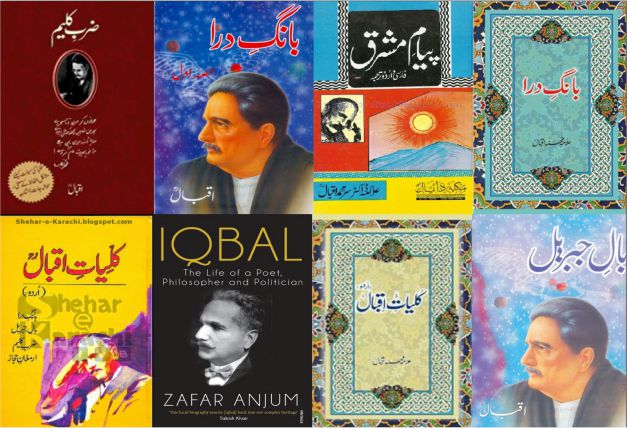
Prose book
Ilm-ul-Iqtisad-1903Poetic books in Persian
Asrar-i-Khudi-1915Rumuz-i-Bekhudi-1917
Payam-i-Mashriq-1923
Zabur-i-Ajam-1927
Javeed Nama-1932
Pas Cheh Bayed Kard ai Aqwam-e-Sharq-1936
Armughan-e-Hijaz (Persian-Urdu)-1938
Poetic books in Urdu
Bang-i-Dara-1924
Bal-i-Jibril-1935
Zarb-i Kalim-1936
Books in English
The Development of Metaphysics in Persia-1908The Reconstruction of Religious Thought in Islam-1930
Iqbal and west
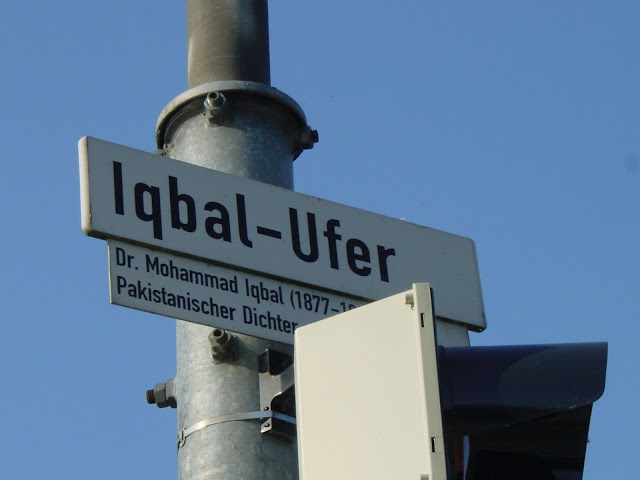 |
Nameplate of a street Iqbal-Ufer, Heidelberg, Germany, honored in the name of Iqbal. |
[Iqbal is] great for his passionate condemnation of weak will and passiveness, his angry protest against inequality, discrimination and oppression in all forms i.e., economic, social, political, national, racial, religious, etc., his preaching of optimism, an active attitude towards life and man's high purpose in the world, in a word, he is great for his assertion of the noble ideals and principles of humanism, democracy, peace and friendship among peoples.
Others, including Wilfred Cantwell Smith, stated that with Iqbal's anti-capitalist holdings he was 'anti-intellect', because "capitalism fosters intellect". Professor Freeland Abbot objected to Iqbal's views saying that Iqbal's view of the West was based on the role of imperialism and Iqbal was not immersed enough in Western culture to learn about the various benefits of the modern democracies, economic practices, and science. Critics of Abbot's viewpoint note that Iqbal was raised and educated in the European way of life, and spent enough time there to grasp the general concepts of Western civilization.
''Last moments of Iqbal''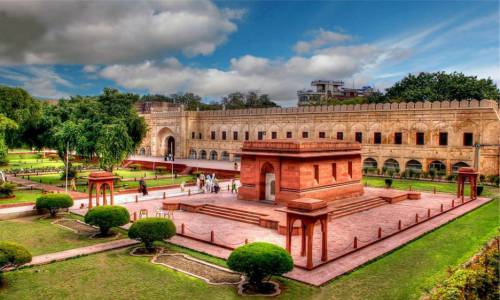
After suffering for months from his illness, Iqbal died in Lahore on 21 April 1938. His tomb is located in Hazuri Bagh, the enclosed garden between the entrance of the Badshahi Mosque and the Lahore Fort, and official guards are maintained there by the Government of Pakistan.Government and public organizations have sponsored the establishment of colleges and schools dedicated to Iqbal, and have established the Iqbal Academy to research, teach and preserve the works, literature, and philosophy of Iqbal.
A few minutes before his death he recited these touching lines:
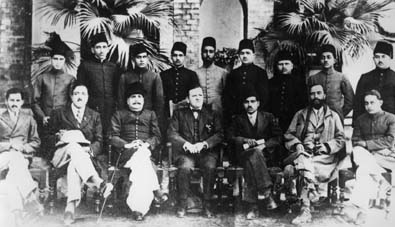
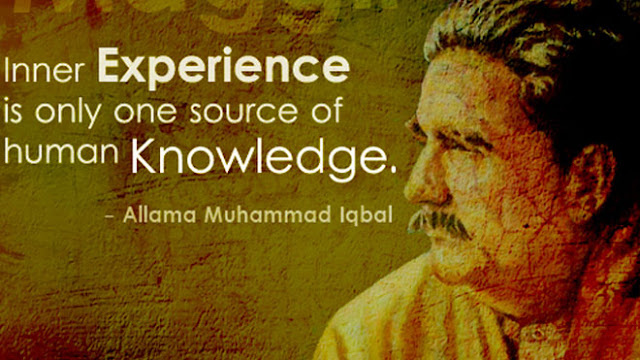
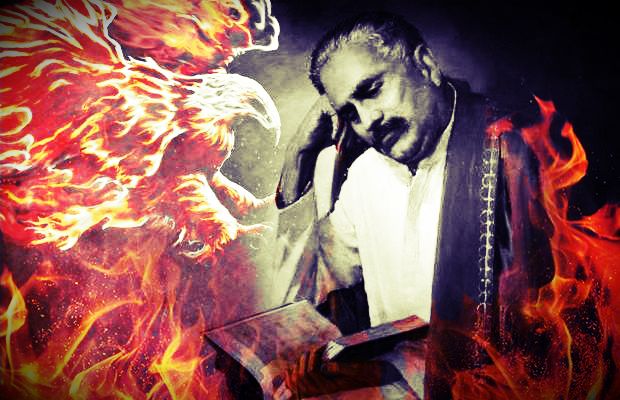
EmoticonEmoticon